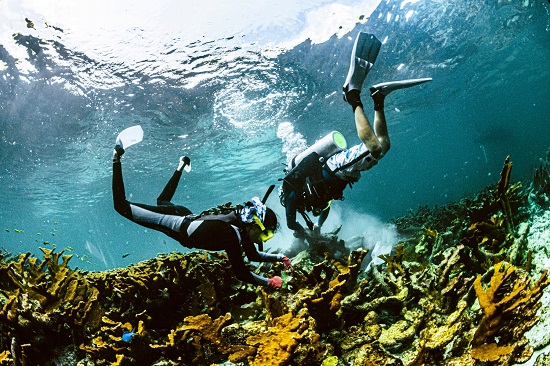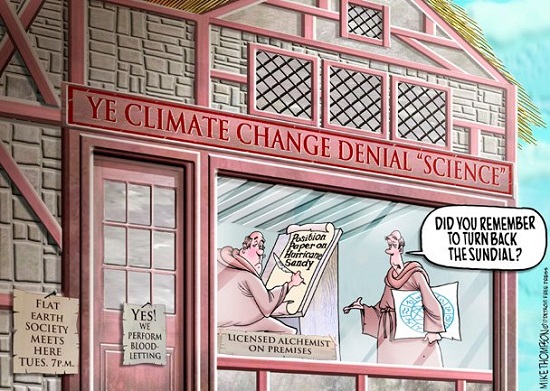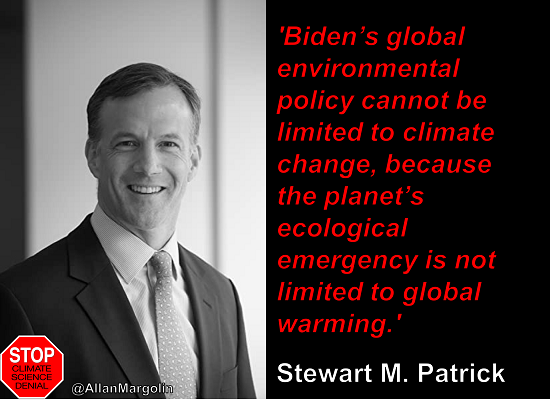
Story of the Week... Toon of the Week... Quote of the Week... Reports of Note... Coming Soon on SkS... Climate Feedback Claim Review... SkS Week in Review... Poster of the Week...
In an unusual experiment, a coral reef in Mexico is now insured against hurricanes. A team of locals known as “the Brigade” rushed to repair the devastated corals, piece by piece.

When Hurricane Delta hit Puerto Morelos, Mexico, in October, a team known as the Brigade waited anxiously for the sea to quiet. The group, an assortment of tour guides, diving instructors, park rangers, fishermen and researchers, needed to get in the water as soon as possible. The coral reef that protects their town — an undersea forest of living limestone branches that blunted the storm’s destructive power — had taken a beating.
Now it was their turn to help the reef, and they didn’t have much time.
“We’re like paramedics,” said María del Carmen García Rivas, director of the national park that manages the reef and a leader of the Brigade. When broken corals roll around and get buried in the sand, they soon die. But pieces can be saved if they are fastened back onto the reef.
“The more days that pass, the less chance they have of survival,” she said.
The success or failure of this experiment could determine whether communities around the world start using a new tool that marries nature and finance to protect against the effects of climate change. The response to Delta was a first test.
Click here to access the entire article as originally published on the New York Times website.
A Race Against Time to Rescue a Reef From Climate Change by Catrin Einhorn & Christopher Flavelle, Climate, New York Times, Dec 5, 2020

Hat tip to the Stop Climate Science Denial Facebook page.
[To be added.]
[To be added.]
CLAIM: “The clothing industry contributes up to 10% of the pollution driving the climate crisis.”
VERDICT: ![]()
SOURCE: Patagonia, Instagram, 30 Nov. 2020
KEY TAKE AWAY: Globally, the fashion industry is estimated to contribute 3 - 10% of the greenhouse gas emissions that are causing climate change, based on scientific studies and reports from the United Nations and charities. The clothing industry has a variety of other environmental impacts, including intensive water use, water pollution through dying and textile production, and pesticide and herbicide pollution through the agricultural production of cotton. Microplastics, which are shed primarily from synthetic textiles during washing, are also polluting the oceans, potentially negatively impacting human health and natural ecosystems.
Click here to access the detailed analysis of this claim by a panel of experts.
The clothing industry produces 3 to 10% of global greenhouse gas emissions, as accurately claimed in Patagonia post, Edited by Nikki Forrester, Claim Review, Climate Feedback, Dec 6, 2020

Stewart M. Patrick is the James H. Binger senior fellow at the Council on Foreign Relations and author of “The Sovereignty Wars: Reconciling America with the World” (Brookings Press: 2018). His weekly WPR column appears every Monday. The quote is from his article, Biden’s Environmental Agenda Must Go Beyond Climate Change published by the World Politics Review (WPR), Nov 30. 2020
Posted by John Hartz on Sunday, 6 December, 2020
 |
The Skeptical Science website by Skeptical Science is licensed under a Creative Commons Attribution 3.0 Unported License. |